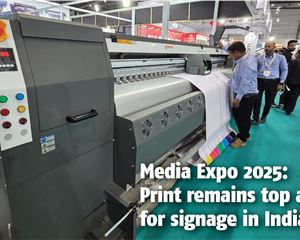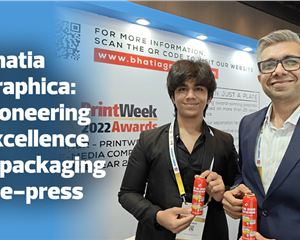With plant in Panoli, Sakata eyes a lion’s share in web ink segment
Talking to PrintWeek India a day after the launch of their new ink manufacturing plant at Panoli in Gujarat, Kotaro Morita, president, Sakata Inx, was all gung ho about the future of ink market in India, especially in the web ink segment. While the newspaper industry the world over is shrinking at an alarming rate, Morita said, in India, the industry is moving towards further growth. Again, Indian newspapers, more than ever, are looking at quality ink to attract both customers and adverti
17 Jul 2014 | By Dibyajyoti Sarma
While the Japan-headquartered ink manufacturer is at the top on home turf, in India, according to the company, it is third largest in India, behind DIC and Micro Inks. According to VK Seth, managing director, Sakata India, all this is going to change for better once the Panoli plant goes fully operational. Seth said the company already has a customer-base with all major newspaper houses in India and supplies ink to at least 100 locations.
While the primary focus of the New Panoli plant will be the production of ink for newspaper printing, in future, the company will also focus on other ink segments, such as UV and digital inks. Sakata India is also eyeing the huge growth potential in the retail industry segment with the new plant. The company already has a plant in Bhiwadi in Rajasthan.
Another focus of the Panoli plant will be to increase the export potential of Sakata India. Seth said the Sakata group has a large territory and the company is looking at exports to countries in Middle East, CIS countries, Africa, neighbouring countries and parts of Eastern Europe countries. The company is fully focussed to increase its sales in Export.
According to Seth the new plant is expected to increase the contribution to revenues earned from ink exports from current15% to 25% and will incorporate the latest R&D facilities and productivity enhancement procedures.
While environmental safety is a major concern for ink and chemicals industry, Seth said Sakata is fully committed to adhering to the safety norms. For example, he said, Panoli is a zero-discharge plant. “We try our best to limit the generation of waste and the generated waste is disposed through the guidelines of the Pollution Control Board.”
 |















 See All
See All